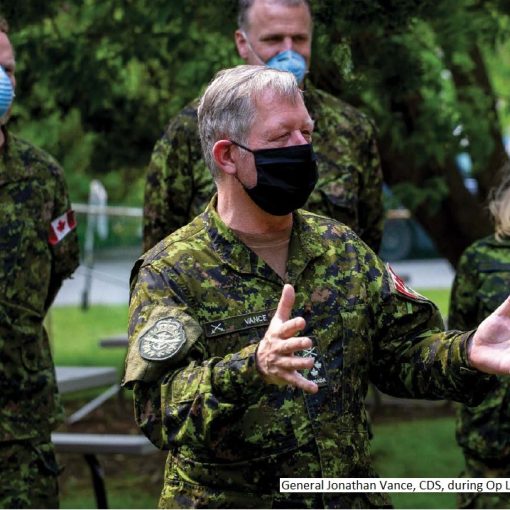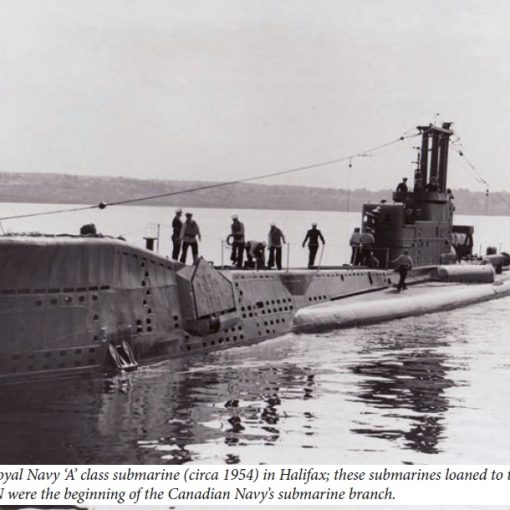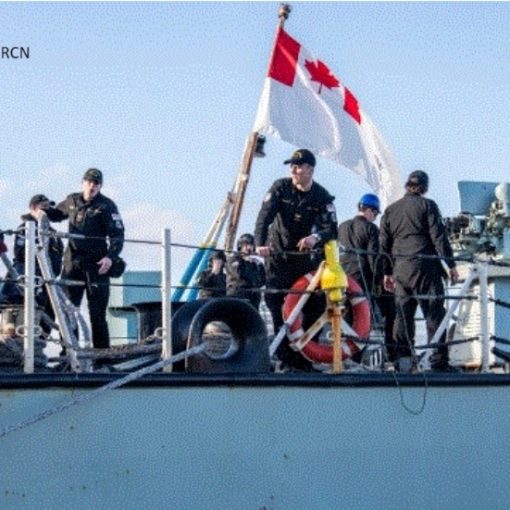*Editor's Note: This is an abridged version of an article originally published in the NATO magazine, Cutting the Bow Wave 2013, which has just been released.
Consumers and their governments are generally unconcerned that 90 per cent of the world's trade is conducted by the international shipping industry. The oceanic transportation industry has transformed the industrialized world into a "just-in-time" manufacturing zone, in which "our warehouses now float," as Canada's Rear-Admiral David Gardam, commander of the Royal Canadian Navy's Atlantic Fleet, observed.
The public's blasé expectation that what we want will be available when we want it without being mindful of how it arrives at the table, store shelf or the assembly shop floor has been loosely called maritime blindness. It also describes the lack of awareness about strategic and security issues associated with international use of the ocean commons.
About one million mariners are employed in 50,000 merchant ships registered in more than 150 nations. New Zealand's Vero Marine Insurance estimates that between five and six million sea containers are in transit at any given time.
Here are a series of hot buttons that emanate from our growing reliance on maritime trade and commerce:
Human smuggling and trafficking yield illegal profits from US $7B to 12B per year and $32B from the sexual servitude of women and children. The United Nations Office on Drugs and Crime (UNODC) estimates 1,000 lose their lives each year. The International Catholic Migration Commission puts the number much higher.
Energy security: Nigeria lost $7B to oil theft from maritime drilling platforms. Recently, Iran threatened that it could block the flow of oil through the Strait of Hormuz, a waterway that borders that country and connects to the Persian Gulf and channels almost 20 percent of the world's oil. The global energy supply chain is vulnerable to disruption at key maritime choke points such as the Straits of Malacca, Bab Al-Mandab, the Suez Canal, the Turkish Straits and the Strait of Hormuz.
Port security: Eighty percent of global trade passes through the world's 4,000 ports, making them the potential targets for illegal activity and terrorism, pointing to the need for robust port security facilities and secure cargo loading.
Territorial claims: Despite the general belief that all land has been allocated to the various nations since the Treaty of Westphalia in 1648, there are hundreds of regions under dispute. Portions of the Arctic are being subjected to claims by the United States, Russia, Norway, Denmark and Canada; and there is the possibility of conflict over claims to the small island archipelago, which Japan calls Senkaku and China calls Diaoyu.
Included in the many other territorial claims with a maritime association that could spark conflict are: Mauritius and Seychelles claim the Chagos Islands; Spain and Morocco both claim Perejil Island, which led to an armed incident between the two countries in 2002; and Somalia and Yemen claim the Socotran Archipelago.
Maritime terrorism: An article in the respected journal, The Economist (11 October 2002) disclosed that an Egyptian, suspected of being an al-Qaeda terrorist, was discovered hiding in a sea container in the Italian port of Gioia Tauro. Had he not been discovered, his voyage would have taken him to Halifax, NS. Two terrorists believed to be responsible for the bombing of USS Cole also masterminded the 7 October 2002 bombing of the French super tanker MV Limburg.
And added to this list are:
Drug smuggling: The United Nations estimates the global illegal drug trade at US$321.6B in 2003, against a global GDP of US$36T. Since the 1980s, maritime traffickers of cocaine, who transport over 80 percent of the cocaine for the United States market, have been remarkably and successfully innovative at evading detection.
Illegal migration: There are estimates of between five million and fifteen million illegal residents in the United States; illegal migrants have landed on both of Canada's coasts, and the potential to land illegal migrants in Canada’s warming north is increasing.
There are at least 50,000 illegal workers estimated to be in Australia, but a 2010 Australian Government report suggested it could be as many as 100,000. Thousands of illegal African migrants make the trek across the Mediterranean Ocean to Italy. However, the target of choice for illegal migration is the United States, viewed worldwide as the most desirable destination for people seeking to improve their circumstances.
Maritime piracy: Events off the Somali coast have raised the profile of piracy and attracted the world's attention. But the problem isn't exclusively Somali. There have been reports of piracy in the Caribbean as well. Dr. Manoj Gupta, a retired Indian Navy submarine commander with 22 years of naval service and currently a member of the Australian Defence Science and Technology Organisation, recognizes piracy as a major concern. He warns that Somalia-based piracy has grown from its birthplace in the littoral waters off Haradeere to the waters of the United Arab Republic to the north, northern Mozambique to the south and eastward to India's Gujarat peninsula.
In 2011, while there were 160 incidents of piracy off the Somali coast, there were 13 in the South China Sea, 33 in Benin, 37 in the Gulf of Aden, 46 in Indonesia 16 in Malaysia and 39 in the Red Sea, totalling eleven more than were in Somali waters.
Communicating maritime blindness
In effect, consumer and corporate sectors are as oblivious to the maritime sector as they are to the automotive sector and the agricultural sectors, until they are made aware of the importance of those commodities by principals within those communities, or by the absence of the very commodities they want and need.
The world's navies and maritime sectors need to develop and implement programs to educate their citizens about the importance of the seas as marine super-highways, and the roles and missions of their navies and coast guards in protecting the interests of their nations on the ocean commons and in littoral waters.




